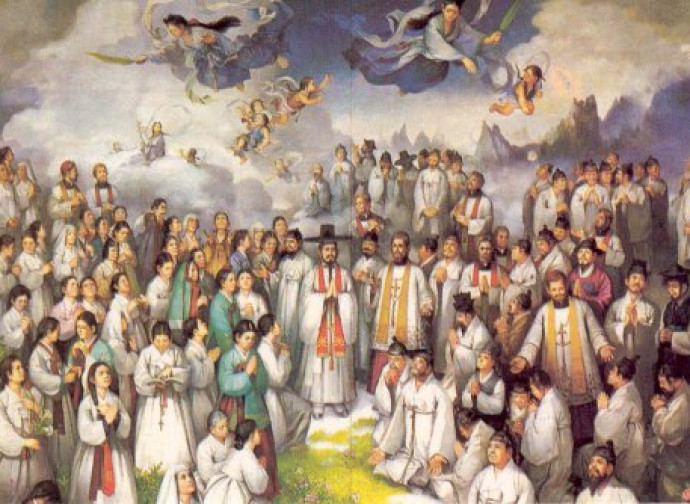Korean Holy Martyrs
The edict of King Sunjo in 1802 ratified the persecutions that had already been taking place since the end of the 18th century

“Since we cannot find any means of changing the minds of Christians, it is imperative that they die in order to destroy the germ of their madness”. This was the edict of King Sunjo in 1802, which ratified the persecutions that had already been taking place since the end of the 18th century. Just then the first Korean Christian community was born in a unique way, on the initiative of lay people. Its history deserves at least a mention.
In Korea some writings by Matteo Ricci and other missionaries who had evangelized China had been circulating for about two centuries. When Yi Byeok, eager to learn more about Christianity, heard that his friend Yi Seung-hun was leaving for a diplomatic mission, he advised him to be baptized in China and begged him to return with some books. His friend followed his advice. He returned with Christian books, crucifixes and a significant baptismal name: Peter. It was 1784. Soon the number of Christians increased, but the lack of clergy was a problem. The first priest arrived from China around 1795, after the bishop of Beijing had informed the embryonic Korean community of the need for apostolic succession in order to have legitimate pastors and be in communion with the Church.
The faith of the Koreans survived the persecutions of 1801, during which the only priest was also killed, and was revived from 1837 on when the first bishop, Laurent Imbert, of the Society for Foreign Missions in Paris, arrived. Monsignor Imbert suffered martyrdom two years later, but soon other bishops and missionaries entered Korea thanks also to the work of young people like Andrew Kim Taegon, who became the first indigenous priest. In the Roman Martyrology he is the leader of the 103 martyrs remembered today (ten foreigners), including three bishops and eight priests, all killed between 1838 and 1867. The Koreans calculate that since the birth of the first community some tens of thousands of Christians have lost their lives for their faith.
Their blood has not been fruitless. In 1886 religious freedom was granted. And today there are about six million Catholics in South Korea. The hope is that also in North Korea, the worst offender in persecutions, faith can follow the same course and people will find inspiration in the words of St Andrew Kim: “Dearest brothers, know with certainty that our Lord Jesus, who came into the world, took innumerable pains upon himself, with his passion he founded the holy Church and makes it grow with the trials and martyrdom of the faithful”.
